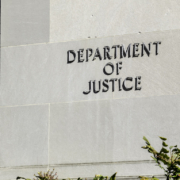ESSA Bank to pay $3M to settle DOJ’s redlining allegations
The U.S. Department of Justice (DOJ) this week announced that it had secured a settlement of more than $3 million from Philadelphia, Penn.-based ESSA Bank & Trust over allegations that the company engaged in redlining majority Black and Hispanic communities from access to credit services around the Philadelphia area.
According to a complaint filed by DOJ in the U.S. District Court for the Eastern District of Pennsylvania, ESSA “failed to provide mortgage lending services and did not serve the credit needs of majority-Black and Hispanic neighborhoods in the Philadelphia metropolitan area” from 2017 to 2021.
“For too long, residents of communities of color have been unlawfully denied equal access to credit and shut out of economic opportunities,” said Assistant Attorney General Kristen Clarke of the DOJ Civil Rights Division in the DOJ announcement. “When banks engage in redlining, they perpetuate existing patterns of segregation and widen the racial wealth gap in our country. This resolution makes clear our commitment to holding banks and financial institutions accountable for modern-day redlining while ensuring access to fair lending in communities of color.”
Under a consent order still subject to court approval, ESSA has agreed to invest $2.92 million in a designated loan subsidy fund designed to increase access to credit for home mortgage, improvement and refinance loans, as well as home equity loans and lines of credit, in majority-Black and Hispanic neighborhoods within the bank’s lending area.
ESSA has also agreed to spend $125,000 on community partnerships and $250,000 on advertising, outreach, consumer financial education and credit counseling to the impacted communities specified in the complaint and consent order.
“The consent order also requires the bank to hire two new mortgage loan officers to serve its existing branches in West Philadelphia and conduct a research-based market study to help identify the needs for financial services in communities of color,” the DOJ added.
In a statement announcing the settlement, ESSA “categorically denies violating any fair lending laws or engaging in ‘redlining,’” according to a press release.
“ESSA and its Board of Directors believe this is a constructive resolution to a dispute that has lasted several years,” said Gary Olsen, ESSA’s president and CEO. “It is consistent with our guiding principles and longstanding commitment to provide equal lending opportunities to all of the communities we are privileged to serve. We plan on using these loan subsidy funds to expand opportunities for qualified borrowers who can benefit from this assistance. We’re happy and pleased to help families purchase homes. It is simply the right thing to do.”
Olsen added that during the the time period covered by the government’s complaint, “ESSA did not receive a single fair lending complaint from any customer or potential customer.” He also said that the company opened a branch and business center in downtown Allentown, “in a majority minority census tract.”
DOJ opened the investigation into ESSA after being referred by the Federal Deposit Insurance Corporation (FDIC).
“ESSA fully cooperated with the department’s investigation and worked expeditiously to resolve these allegations,” DOJ said.
ESSA’s redlining settlement agreement is the latest in a series of cases brought by the DOJ. In January, Los Angeles-headquartered City National Bank agreed to pay $31 million to settle a case that alleged it avoided providing mortgage services to majority Black and Hispanic neighborhoods between 2017 and 2020.
In July, the DOJ and the Consumer Financial Protection Bureau announced a $24.4 million consent order with Trident Mortgage Co., a subsidiary of Warren Buffet’s Berkshire Hathaway. In September, the DOJ also reached a $12 million-plus settlement with Lakeland Bank over claims the lender engaged in redlining in the Newark, New Jersey metropolitan area.




 :215-447-7209
:215-447-7209 : deals(at)frankbuysphilly.com
: deals(at)frankbuysphilly.com
